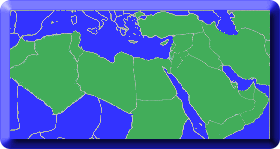
Topics in Middle Eastern and North African Economies
Document Type
Article
Publication Date
5-1-2023
Journal Title
Topics in Middle Eastern and North African Economies
Volume
25
Issue
1
Publisher
Middle East Economic Association and Loyola University Chicago
Abstract
As a leading indicator, the ability to measure the predictive power of consumer surveys are very important for economic policy makers, especially to capture a forward-looking perspective on consumer trends. Trends in leading sectors such as real estate, automobile and consumer electronics are expected to signal direction of consumption demand in an economy. Within this framework, whether the consumer confidence signals the trends in leading sectors or the trend in leading sectors effect the consumer sentiment are vital questions to detect the dynamics of domestic demand. Macroeconomic cycles like high and volatile inflationary environments might create counter effect to determine the direction of causality between those factors. In Turkey, there are two consumer confidence indexes, Bloomberg HT Consumer Confidence Index and TURKSTAT Consumer Confidence Index which are regularly released by early 2000. This study aims to explain simultaneous relationships between consumer confidence and leading sectors with ARDL methodology using two consumer confidence indexes. Preliminary findings state that causality mostly runs from consumer confidence to demand for the products of leading sectors.
ISSN
2334-282X
Recommended Citation
Aslanoğlu, Erhan; Aksu, Yasin Enes; and Okan, Jonberk, "Relationship between Consumer Confidence Index and Leading Sectors in Turkey". Topics in Middle Eastern and North African Economies, electronic journal, 25, 1, Middle East Economic Association and Loyola University Chicago, 2023, http://www.luc.edu/orgs/meea/
Creative Commons License

This work is licensed under a Creative Commons Attribution-Noncommercial-No Derivative Works 3.0 License.
Copyright Statement
© The Author(s), 2023



Comments
Presentation of the articles in the Topics in Middle Eastern and North African Economies was made possible by a limited license granted to Loyola University Chicago and Middle East Economics Association from the authors who have retained all copyrights in the articles.